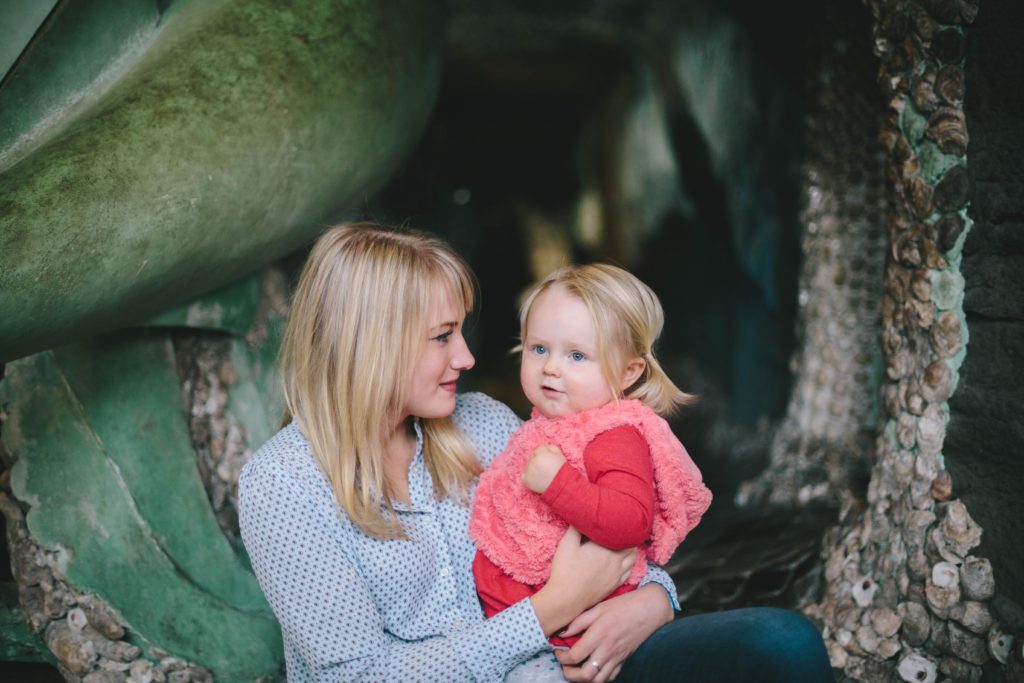
Treatment can help anxious moms relax and enjoy their babies.
Jill was so excited to be pregnant. She’d waited for 4 years after she and Joe were married to start trying. She was just elated three months later when a home pregnancy test showed those two little lines. She was pregnant! Even the slightest thought of antepartum and postpartum anxiety never crossed her mind.
In spite of waves of nausea off and on the first couple months, by the time she got through her first trimester, she was feeling better. Her excitement to see and hold her precious baby was bubbling up like crazy. How could she wait six more months??
But as she moved through the 4th month, she began to feel… uneasy.
Just this vague sense that something bad could really happen… maybe something about her pregnancy wasn’t going as it should? She worried that something was going wrong with the baby. What if there was something wrong that they couldn’t see? Or a problem with his development? What if he was in that 3%? What if something went really wrong during delivery?How would she take care of him?
Day by day the dread grew worse. She asked her doctor about her concern, and she assured her that everything looked good. Told her that she should enjoy her pregnancy.
That was the problem. She couldn’t. She was worried sick.
Then, when she reached her third trimester, the dreams started with a vengeance. Night after night she’d dream she gave birth … to an alien. Or a forest creature. Or a monstrous murderous demon. She was so ashamed that these were her nightmares that she couldn’t tell anyone. No one.
When something is so terrible, who can you tell? Who can you trust?
The nightmares were so cruel, so vivid, that she’d wake up in the wee hours sweating, heart pounding, and screaming. Her husband would try to comfort her, then she’d go back to sleep. And the nightmare would continue. It was as if she couldn’t escape.
By the time the baby was born, her joy was gone, and in its place loomed a terrible dread. She feared for the baby, and what he would grow to be. Not who…but what. She tried to nurse him in the hospital but would break down and cry and ask the nurses to take him for awhile to give her a break.
Going Home From the Hospital Didn’t Help
It wasn’t supposed to be like this! What was happening to her? Why couldn’t she enjoy her newborn son?
The first 6 weeks or so she tried. She really tried. She was exhausted, and wondered if she’d ever get enough sleep to feel better. Waking every hour or two around the clock took a toll she didn’t anticipate. Her thoughts about her baby seemed irrational, even to her. She couldn’t imagine why she ever thought she wanted a baby. Now here she was, stuck in a permanent nightmare. She felt cheated.

Then her worries about what she might do to him if she let her guard down overwhelmed her. She mentioned her concerns to her pediatrician during a routine visit, and he explained that this could be postpartum anxiety and gave her a card to see someone he trusted.
Within a few months after her treatment began, she was beginning to see life, her son, and herself in a new light. She could sort of imagine now that it was possible she could have a good and loving relationship with him.
It helped enormously to know all this was a condition her hormonal imbalances and stress created. To fully realize that neither she nor her infant son were to blame. She read all she could find on antepartum and postpartum anxiety.
There wasn’t much.
But where, oh where, did it come from?
We’re all familiar with postpartum depression, but you rarely hear people talk about postpartum anxiety. While the two often join forces, they’re actually individual disorders. Since postpartum depression is often associated with sadness and anxiety, postpartum anxiety is sometimes overlooked.
It’s actually possible to feel overwhelmed, severely stressed, and have thoughts of harming your baby or… of ending your own life… without feeling sad.
When a woman gives birth, several changes go into high gear in her body. Pregnancy hormones drop, lactating hormones kick in, and the sudden changes in her brain give way to mood swings.

Add to that the painful engorgement in her breasts as milk comes in, lack of sleep from her baby’s waking every hour or two to eat, the soreness in her perineum from stitches, (or in her abdomen from a C-section) and cramping of her uterus as it recovers from pregnancy and childbirth, and this new mother is enduring substantial stress.
Stress + Fear = Anxiety
Even though many people are more familiar with postpartum depression, roughly 6% of all pregnant women and about 10% of those who are postpartum develop anxiety that’s severe enough to need treatment.
It’s natural for a new mother to have mild worries or nervousness about whether her baby is eating enough, whether the baby’s stool is like it’s supposed to be…and wonder if she’ll ever feel rested again.
But when mild worries become more intense, concern becomes a constant dread that something bad is going to happen, or intrusive thoughts begin of harming the baby or yourself, it’s time to seek help.
So why do some mothers seem to adapt to the new addition to the family, along with hormone changes, the lack of sleep, and the new routine, while others feel and think things they don’t want to feel or think, struggle to bond with the baby or enjoy her, and wish for a way to escape … either temporarily or permanently…?
There are a number of factors. And none of them are the anxious mother’s fault.
Risk Factors for Antepartum and Postpartum Anxiety
First, mothers who have relatives with anxiety disorders –or have had anxiety disorders themselves in the past — are at higher risk for postpartum anxiety than woman with no family history of anxiety at all. In addition, women with thyroid imbalance are at higher risk, also.
Most of the time when we refer to postpartum anxiety, we’re talking about a generalized anxiety disorder that develops during or after pregnancy. Symptoms like nervousness, constant worry, difficulty sleeping, racing thoughts, tension…
But there are a couple more types of postpartum anxiety that are important to highlight.
Postpartum Panic Disorder
Panic disorder doesn’t mean being panicky, or having anxiety that escalates easily until you feel wound up. It means having frank, out of the blue, and unprovoked panic attacks. You’re not just worried all the time about whether the baby is eating enough, whether you’re capable of being a good mother, or whether the baby will get sick, you begin to get random episodes of sheer panic.
Sometimes multiple times a day.
Shortness of breath, fast heart rate, chest pain, dizziness, and tingling along with feeling confined or like you’re suffocating can make it extremely difficult for you to take care of your baby, yourself, or the rest of the family. These sensations can come and go, but you may need professional help to cope with them and reduce their impact on you and your new family.
Postpartum Obsessive Compulsive Disorder (POCD)
Symptoms of OCD can emerge during or after pregnancy, too. They’re similar to general symptoms of OCD but tend to be focused on the baby. Intrusive thoughts about harm coming to your baby can crowd your mind, and even shock you.
The next thing you know, you find yourself checking things over and over and repeating things over and over to try to avoid a circumstance that would allow your thought to come true.
And…you’re probably horrified at the thoughts that pop into your mind. But this is why we call them “intrusive” thoughts. They intrude into your thoughts without you inviting them.
They’re a result of disordered circuitry, and misfiring signals, in your brain as the result of relentless and overwhelming stress, shock, and genetics.
Of all of the antepartum and postpartum anxiety disorders, this may be the most difficult and the most upsetting of all. Even though you probably know in your head you would never follow through on the thoughts, and you also know that the repetitions and cycles of checking don’t really help, you probably feel powerless to stop. But treatment can do what you can’t by yourself.
Because this condition is treatable, and you need to not endure these symptoms alone. Seek help and treatment so you can get your life and your relationship with your child back on track and in a healthier, brighter place.
Postpartum anxiety disorders are not your fault.
You’re not to blame for the intrusive thoughts, the fears, the compulsive reactions. These are a result of your genetics, your circumstances, your stress, and your family history. But treatment is not only available to you, it also can return your world back to its right and rewarding function.
Antepartum and postpartum anxiety disorders come in various forms with a variety of faces. But it’s vital that you not confront this alone. Rather, seek treatment. And please know that this is not your fault. Even so, you may not get better without help outside yourself.

If you’re pregnant and feeling feelings and thinking thoughts that aren’t what you wish you they were, there is help available. If your baby has been born, and those feelings are just starting or are getting worse, call us. We can help you feel better, or refer you to someone who can.
Don’t face postpartum anxiety disorders alone.
You and your baby deserve a loving and happy relationship together.

What type of treatment is there for anxiety during pregnancy?
There are non-medication therapy treatments for anxiety like cognitive behavioral therapy (CBT) and other types of therapy that help. TMS (transcranial magnetic therapy) is a non-drug treatment option that can be very helpful with OCD, and off-label, it is helpful with generalized anxiety. Some pregnant moms have anxiety that is so terrible that it is too exhausting to try to control all the time with everything else that pregnancy demands, and for them, there are medications that can dramatically help. Your doctor can weigh the risks and benefits of those on you, on your pregnancy, and on your baby, as well as review the risks of not treating the anxiety for you, your pregnancy, and your baby.